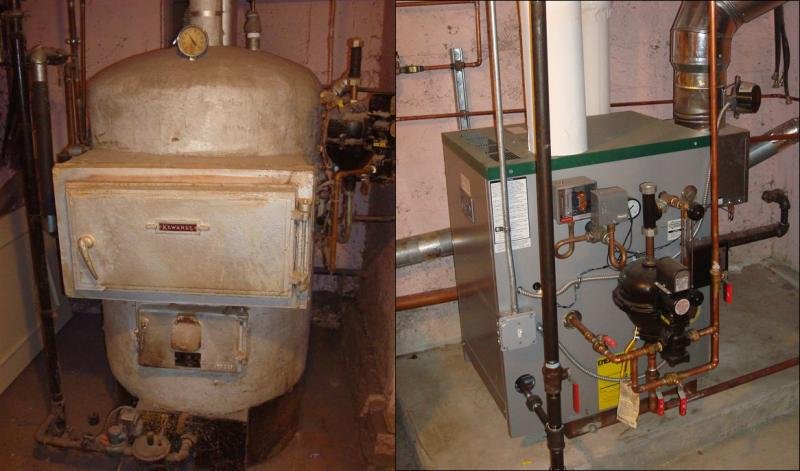At this time of year, we are reminded how expensive it can be to heat our homes. According to the U.S Department of Energy, heating costs account for 30% of a typical home’s utility bill. There are multiple ways of cutting these costs but the best one is to outfit your home with an efficient heating system. The upfront investment needed will save you money over time. The more efficient the heating system, the less energy it needs to operate, which will translate into lower heating bills each month. Of course, the simple solutions are installing a programmable thermostat or putting on a sweater but the real solution is to install an energy-efficient heating system.
Understanding what makes a heating system efficiency is the first step in determining what type of unit will be the correct fit for your home. A heat pump’s effectiveness is directly affected by the weather conditions. If you live in a moderate climate, heat pumps are more efficient than a furnace. In extremely cold climates a furnace is more efficient.
The most important information you will need is the system’s annual fuel utilization rating, AFUE for short. This measurement is a percentage rate that tells you how much of the energy that the system consumes is going directly toward heating your home versus how much is being wasted. It tells you to know how much energy the system is converting into usable heat. The DOE requires a minimum AFUE of 80% but many modern heating systems exceed the minimum score rating to soar as high as 98.5%. It would be prudent to avoid anything manufactured before 1992; there were no AFUE standards before that. This means if you are living in a 30 year plus old home and have not upgraded the heating system, you are probably wasting a lot of energy and money.
It is difficult to say exactly how much energy is being wasted because it depends on so many factors. To sum it up easily you must understand the difference between an old furnace and a new one. The DOE reports that “upgrading your furnace or boiler from 56% to 90% efficiency in an average cold-climate house will save 1.5 tons of carbon dioxide emissions if you heat with natural gas.” It can also reduce your heating bill by as much as 50%!
In order to maximize you’re saving and fuel efficiency, you must first find a system that is compatible with your home’s energy source. Some homes are outfitted for electric heating and others are set up for natural gas. Overall, natural gas is more efficient than electricity so it is important to bear that in mind. If you are already set up with natural gas the next step is to decide which of the three main types of heating systems is best for your home. They are:
- Furnace– in general, furnaces are the most efficient of all the heating systems. They work by heating air with a component called a heat exchanger which pushes the air into the home through a duct system using a fan (or blower). Its biggest advantage is its affordability. Expect to pay between $2,000.00 and $ 7,000.00 for a new furnace. The only downside of this choice is that the fan furnaces are often very loud.
- Heat Pump- is an air conditioning and heating unit all in one. When it is hot outside, the unit takes air from inside your home, removes the heat from it with refrigerant, and pumps it back into the house as cool air. During the winter months, it takes air from inside and adds heat to it before sending it back indoors to warm up your space. Outdoor air is never brought in through the heat pump. Having a heat pump/air conditioning unit all in one is dual purpose and very efficient in its own way. Heat pumps cost around $ 5,600.00 with some as much as $ 20,000.00 depending on the type you get. They come in three varieties: air-source, split duct, and geothermal. The benefits of a heat pump include excellent air filtration and lack of noise. Unfortunately, the benefits of a heat pump may not include reducing your energy expenses. Your electric bill may be raised as much as your gas bill is lowered. Heat pumps are not rated by the AFUE. Their efficiency is based on the Heating Seasonal Performance Factor (for heating mode) and the Seasonal Energy Efficiency Ratio (for cooling mode). An “Energy Star” certified heat pump will be the best bet.
- Boiler- a boiler is a system that heats up water in a tank and uses that water to warm your house. The water is pumped from the boiler’s tank through a series of pipes to individual radiators. The radiators then distribute the heat around the various rooms and spaces. Natural gas boilers are very efficient; some have AFUE ratings up to 100. Electric boilers, or those that run on oil, are uncommon, even though you can still get them. They take up more space than the average furnace because of their tall and cylindrical shape. A boiler can cost up to $ 10,000.00 with pricey repairs too,
It helps, of course, to know what defines “efficient” so that when you go in search of one—or when you are trying to determine whether your existing system is efficient—you’ll know what to look for.


